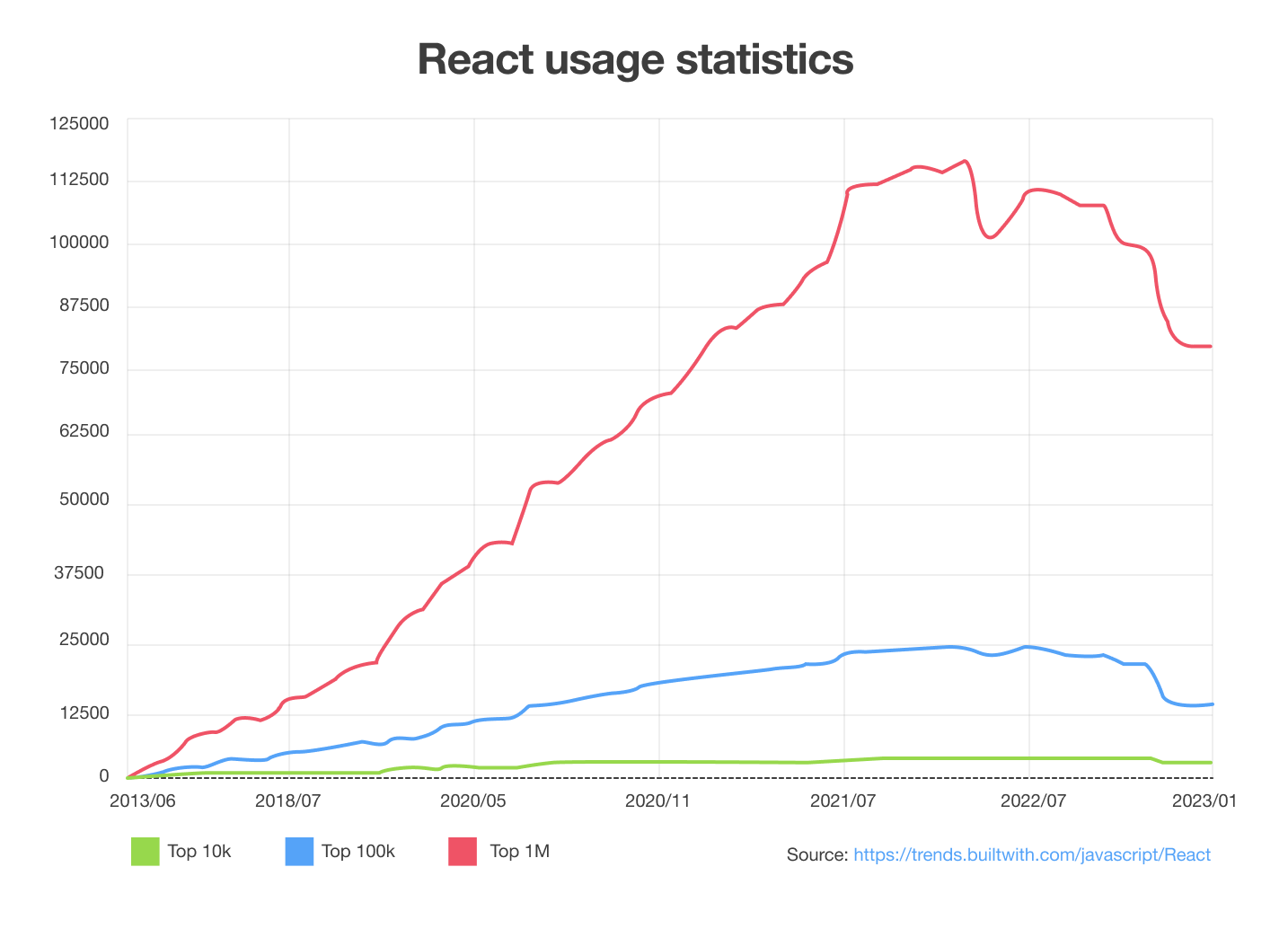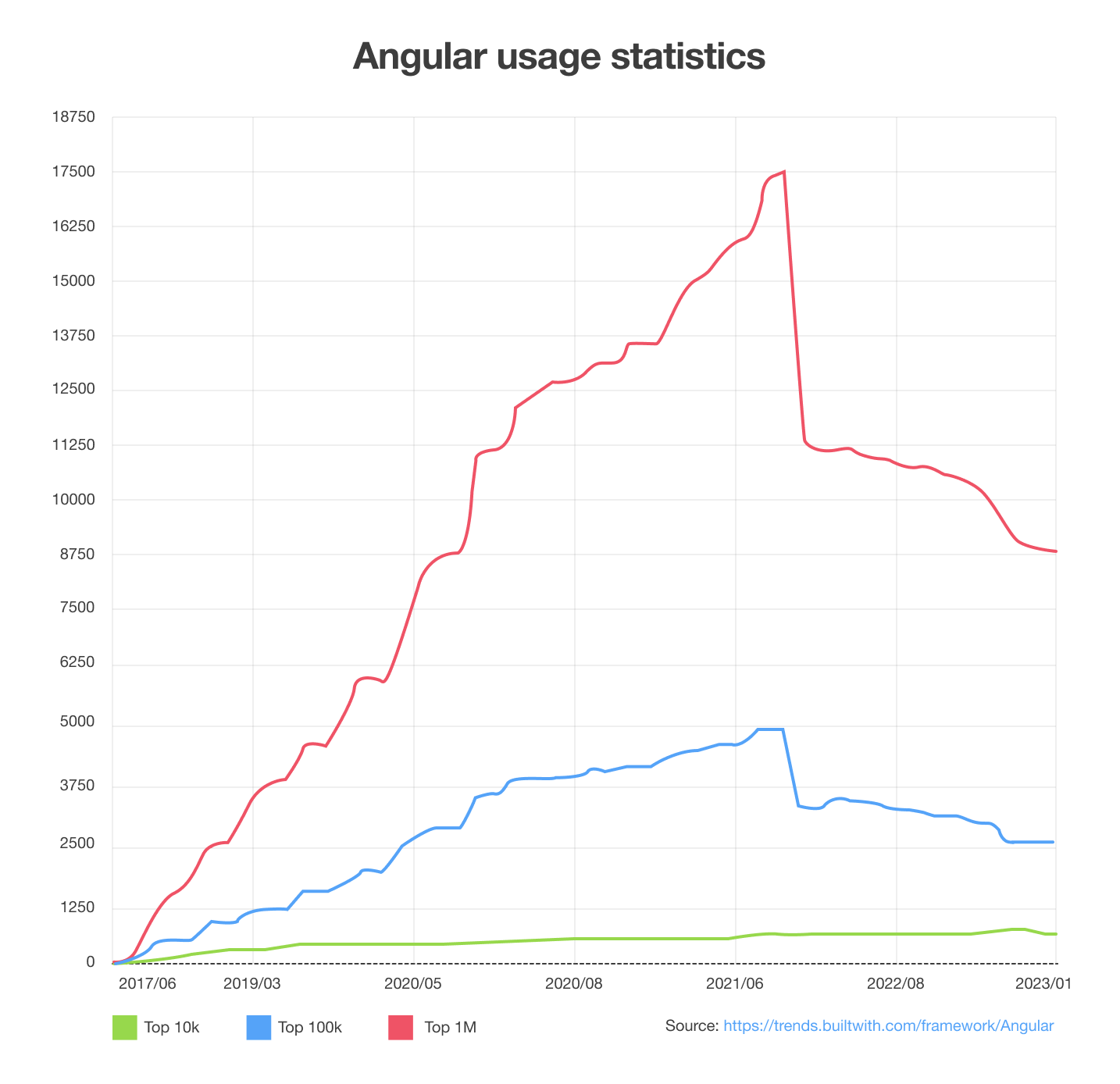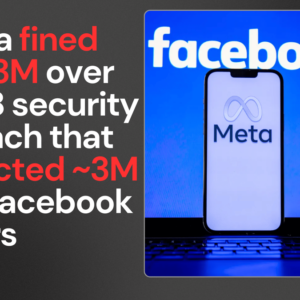When it comes to building web applications, developers often find themselves at a crossroads, trying to decide between two of the most popular frameworks Angular and React. Both have their strengths and weaknesses and choosing the right one can feel overwhelming. But don’t worry! By the end of this post, you’ll not only know the winner but feel confident in your choice!
Let’s dive into the exciting world of web development and explore how these two frameworks stack up against each other.
Popularity and Demand
In the tech world, popularity can be a significant indicator of demand. So, which framework is currently more in demand Angular or React?
- React has been gaining tremendous traction over the years. According to Google Trends, React is often favored by developers and is expected to remain popular in 2024. It boasts a vibrant community with over 197k stars on GitHub, indicating strong support and frequent updates.
- Angular while still widely used, has seen a slight decline in popularity. It peaked in 2019 but has since dropped from 58% to around 54% usage among developers, as reported by StateofJS.
So, if you’re looking for a framework that’s on the rise, React might be your best bet!

Learning Curve
Now that we know about their popularity, let’s talk about how easy it is to learn each framework.
- Angular is like a big puzzle box with many pieces. It’s a full-fledged framework that requires understanding various concepts like TypeScript, dependency injection, and modules. This can make it a bit challenging for beginners.
- React, on the other hand, is more like building blocks. It’s a library focused on creating user interfaces (UIs), which makes it easier to grasp. If you know some JavaScript and HTML, you’ll find React’s JSX syntax quite intuitive.
In summary, if you’re just starting out, React might be the friendlier option!
Performance
Performance is crucial for any web application. Let’s see how Angular and React compare:
- React shines here due to its Virtual DOM feature. This means that instead of updating the entire page with every change (like Angular does with its Real DOM), React only updates parts of the page that need changing. This leads to faster rendering and a smoother user experience.
- Angular, while still performant, uses two-way data binding which can slow down applications as it automatically updates both the model and the view.
In terms of performance metrics like First Contentful Paint (FCP) and Largest Contentful Paint (LCP), React generally scores higher than Angular, making it a better choice for applications where speed is critical.
Flexibility and Ecosystem
When it comes to flexibility:
- React allows developers to choose their tools and libraries. This means you can pick what works best for your project without being tied down to specific solutions.
- Angular provides a more opinionated approach with built-in solutions for routing, state management, and form handling. This can be advantageous for developers who prefer having everything bundled together but may feel restrictive for those who want more control.
In terms of ecosystem support:
- Both frameworks have robust ecosystems with plenty of libraries and tools available. However, React’s flexibility often leads to a wider variety of third-party libraries.
Real-World Use Cases
Understanding who uses these frameworks can help you make an informed decision:
Companies Using Angular
Some big names using Angular include:
- Google: As the creator of Angular, Google uses it in various applications.
- Microsoft: They incorporate Angular in products like Office 365.
- Samsung, PayPal, and Delta Airlines also utilize Angular for their web applications.
Companies Using React
On the other hand, notable companies using React include:
- Facebook: The birthplace of React uses it extensively across its platforms.
- Instagram, Netflix, and Airbnb are also major players leveraging React for their user interfaces.
- Even companies like Walmart have turned to React to enhance their website performance significantly.
Why I Switched from Angular to React
As someone who has worked with both frameworks, I found myself gravitating towards React for several reasons:
- Simplicity: The learning curve was much gentler with React.
- Performance: The Virtual DOM made my applications feel snappier.
- Community Support: The vast community around React means there are always resources available when I hit roadblocks.
Switching frameworks can be daunting, but I felt more empowered using React due to its flexibility and performance advantages.
When to Choose Angular or React
So how do you decide which framework is right for your project? Here are some guidelines:
Choose Angular if:
- You need a comprehensive solution with built-in features.
- Your team prefers TypeScript or has experience with MVC architecture.
- You’re developing large-scale enterprise applications that require consistent structure.

Choose React if:
- You want flexibility in choosing your tools.
- You’re focused on building dynamic user interfaces quickly.
- Your project requires high performance and responsiveness.
Conclusion
Both Angular and React are powerful tools that can help you build amazing web applications. By considering factors such as popularity, learning curve, performance, flexibility, real-world use cases, and your specific project needs, you can make an informed decision.
Remember that choosing between Angular vs. React isn’t just about picking one over the other it’s about finding what fits best for your project goals!
Before you dive into coding, take some time to evaluate your project needs carefully. Whether you choose Angular or React, both frameworks offer unique advantages that can lead to successful outcomes in your development journey!
For more detailed information on each framework, check out the official Angular documentation and React documentation. Happy coding!












